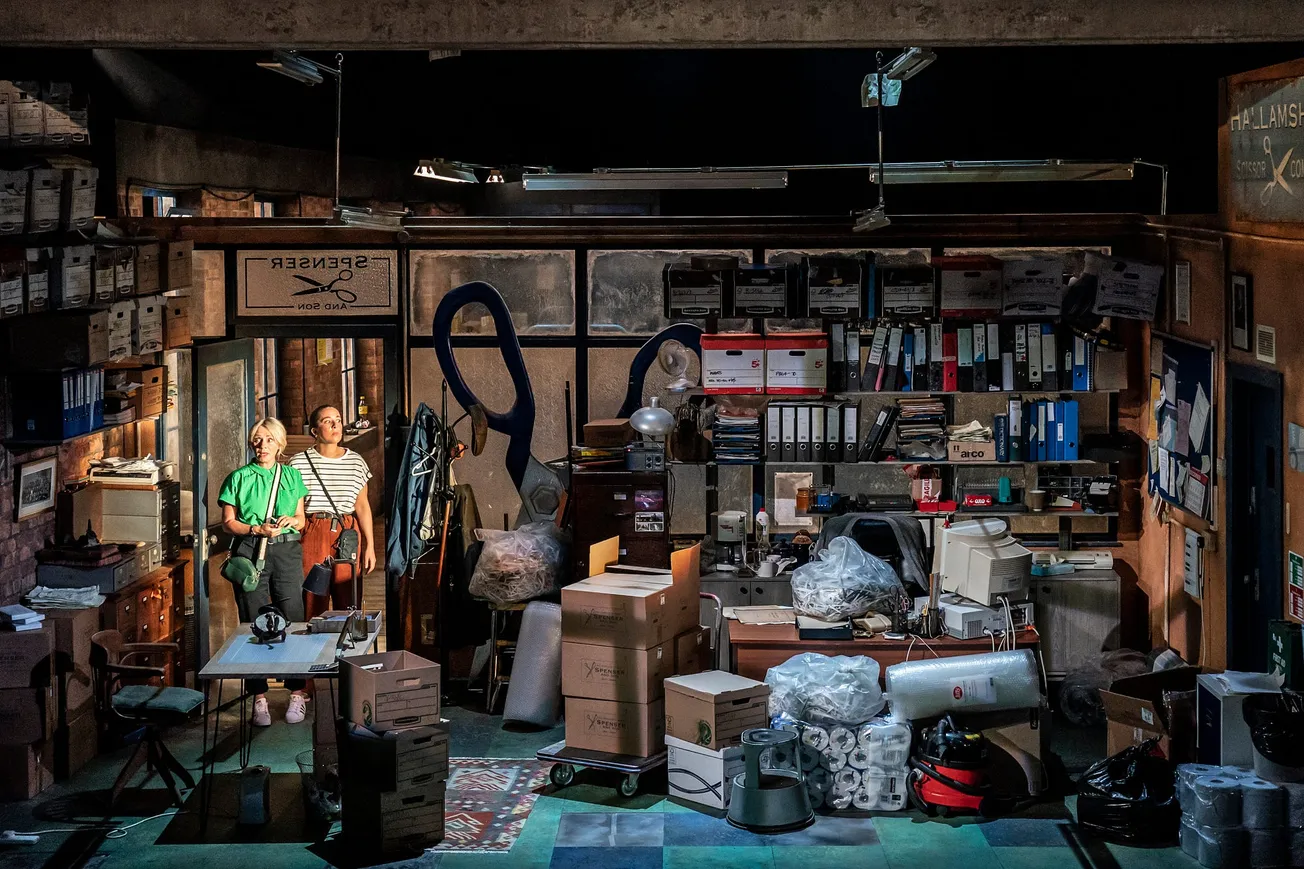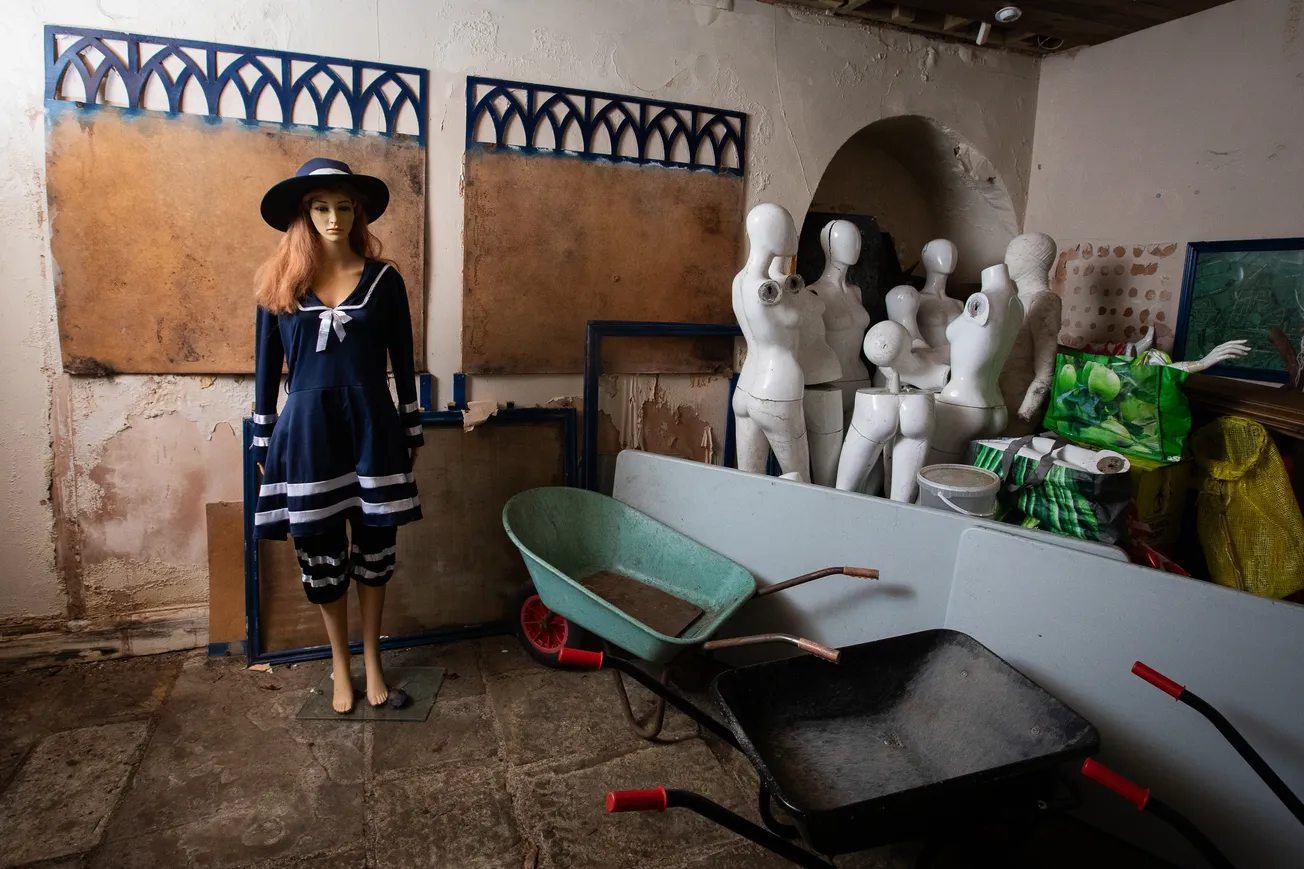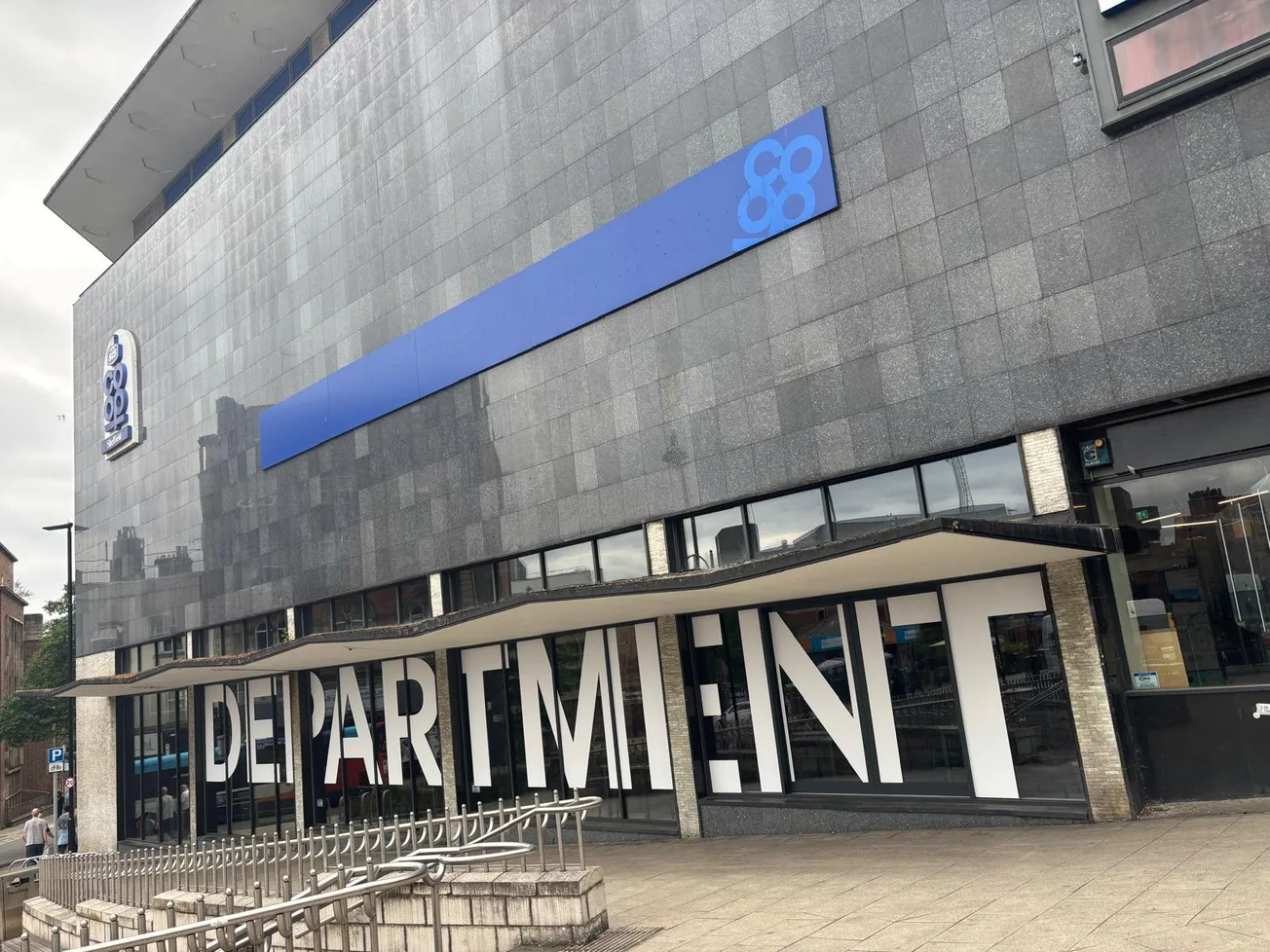Good afternoon readers — and welcome to our Monday briefing.
We all know the NHS is under unprecedented strain. We’ve reported before on the huge backlog of elective operations and the difficulties faced in general practice. But one of the most visible signs of the issues in the health service is A&E, where problems which have been building for a long time have been made even worse by the pandemic. We look at how bad the situation currently is in Sheffield and speak to a patient with first-hand experience.
As well as that we also have some amazing photos from an unusual cycling event that took place on the weekend, a great interview with an in-demand Sheffield playwright and information about the summer season at the “most perfect” medieval house in Britain.
Catch up and coming up
Sheffield DocFest starts this Thursday, June 23, and our weekend long read looked at both what is planned and last year’s well-publicised problems. You can still read that piece here.
“They put on lots of work that is politically motivated or is trying to expose injustices,” he tells me.
— The Tribune (@sheffieldtrib) 12:22 PM ∙ Jun 19, 2022
“But their working practices sometimes fall short of the films that they show.”
How @sheffdocfest attempted to move on after a tumultuous year 🎞
sheffieldtribune.co.uk/p/last-years-s…
Last week we sent out two great newsletters to our 695 paying members. The first included a piece about my visit to an astonishing jungle garden that has been created in Millhouses by a man who is afraid of flying. And the second was a fascinating piece by David Bocking about efforts to rewild parts of the Peak District which could see animals like beaver, lynx, wild boar and even wolves brought back to Sheffield. An extract from that first piece is below.
Many gardeners have scheffleras or umbrella plants — but Simon’s looks like something out of The Day of the Triffids. The central stamen of one looks strangely and mysteriously sentient. It’s differently coloured than the normal leaves and has a furry texture. Simon says it will eventually fall down to look like the others, but I silently hope I’m not here when it does.
This week we’ll send out two more including one about a row over a National Trust property in South Yorkshire that has stopped ramblers from freely accessing its land. To get both of this week’s newsletters, become a member of The Tribune today to help fund a new way of doing journalism in Sheffield.
Editor’s appeal: We are still operating The Tribune on a shoestring budget and with a very small team. To help us grow into the kind of newsroom that can employ a wider range of writers and produce high-quality journalism in Sheffield for years to come, please consider subscribing using the button below. It costs just £1.34 a week if you pay upfront for the year.
The big picture: ‘Theatrical first’ begins

The first shots from Chris Bush’s ambitious new productions Rock/Paper/Scissors have been released by Sheffield Theatres. The three separate but linked plays are being performed by the same cast at the same time across the Crucible, Lyceum and Studio theatres. The above photo shows Samantha Power as Faye and Natalie Casey as Mel in Paper at the Lyceum Theatre. Photo: Johan Persson.
This week’s weather
Our weather forecast comes from dedicated Sheffield weather service Steel City Skies, who say it will heat up — with a risk of breakdown by the end of the week.
Monday 🌤 Set fair with good sunny spells and rising temperatures. Dry throughout with light breezes from the northwest. Highs of 21°C.
Tuesday ⛅ The heat builds with variable cloud and further breaks to very warm and strong sunshine. Isolated shower risk; highs of 24°C.
Wednesday ⛅ A continuation of the very warm, if not hot conditions with dry and bright weather prevailing. Highs of 26°C.
Thursday ⛅ Likely to be the peak of the heat, with sunny spells and the low risk of an evening shower. Highs of 28°C.
Friday 🌦 A developing low to the west threatens to break down our heat. Still very warm, but a growing downpour risk. Highs of 24°C.
Outlook: It is expected to turn less settled for the weekend with a low to the north providing temperatures closer to average, breezier winds and some showers.
To see the full forecast and keep up to date with any changes to the outlook, follow Steel City Skies on Facebook, Twitter, or Instagram.
The big story: ‘Quite simply, crowding kills’
Top line: New data released by the NHS shows the A&E department at Sheffield Teaching Hospitals is missing one of its key targets by a huge amount.
Data: The NHS release data on a monthly basis about how many people who visit A&E are seen within the four hours. Since 2010, 95% of them are meant to be seen within this timescale.
- In May, of the 9,293 patients who attended A&E in Sheffield, almost 50% of them waited for more than four hours to get seen by medical staff.
- Of those who were eventually admitted to hospital, 1,234 waited between 4-12 hours — and 16 patients waited more than 12 hours to be admitted.
The national picture: Across England, of the 1.3m patients who attended A&E in May, more than 480,000 or 35% weren’t seen within four hours. More than 100,000 were admitted after waiting between 4-12 hours and more than 19,000 took longer than 12 hours to be admitted.

Four-hour target: The four-hour target was created by the last Labour government in 2004 as a way of reducing waiting times and helping to combat overcrowding. Originally, 98% of patients were meant to be seen within four hours, but this was reduced to 95% in 2010.
- In recent years there have been calls for a rethink on the four-hour target, with new statistics based on average waiting times reportedly under consideration.
- Several hospital trusts are trialling systems where patients book timed appointments after first being triaged by using the NHS 111 non-emergency number.
First-hand experience: Sheffield patient Sally Goldsmith suffers from cardiovascular disease and was experiencing chest pains. She waited two hours for an ambulance and then another hour in A&E. After hospital staff told them there would be an 8-9 hour wait she left without being treated. She told The Tribune that at least two people in the waiting room were in severe pain with nowhere to lie down and one man was crying. She continued:
The next day my GP advised me I should go back as it was the only way I could get a blood test to diagnose whether it was a heart attack. This time I steeled myself and was there for seven hours. Again, the waiting room was full of people, many of whom were old or had disabilities. Some were very distressed. Staff were also rushed and stressed. The junior doctor I eventually saw seemed to be barely holding it together and was obviously tearful.
Analysis: While the pandemic has profoundly affected the NHS at all levels, A&E waiting times were way off the four-hour target long before Covid hit (the last time the 95% standard was reached nationally was July 2015). While the target has come under criticism in recent years, it remains one of the most high-profile indicators of how the NHS is performing. The Royal College of Emergency Medicine estimated that 4,519 people died last year due to overcrowding in A&E. Dr Adrian Boyle, NCEM vice-president, said: “Quite simply, crowding kills.”
Home of the week 🏡

This two-bedroom ground-floor apartment in Walkley is part of the Grade II-listed Ebenezer Church Flats and is full of period features and character. It is on the market for £225,000.
Our favourite reads
Buildings must stay ‘on climate grounds alone’ 🏗 An interesting intervention in the debate over resuing buildings in the city centre comes from Sheffield Property Association chair Martin McKervey. He tells Star business editor David Walsh that demolishing buildings like John Lewis, Debenhams and Moorfoot must become a thing of the past and it’s up to business leaders and inventors to show how renewing and reusing them is the right thing to do.

‘If it feels more like sport than theatre, we’ve missed the point’ 🎭 A great interview in The Independent with Chris Bush, the writer behind Sheffield Theatres’ new triptych of plays Rock/Paper/Scissors. Bush, who is originally from Sheffield, is much in demand at the moment with six plays opening this year including the currently touring Fantastically Great Women Who Changed The World and Park Hill musical Standing at the Sky’s Edge, which returns this Christmas.
St Mark’s Broomhill – Return ⛪️ 20th-century architecture expert Steve Marland from the Modern Mooch website this week visited St Mark’s in Broomhill — which has a fascinating story. Much of the original 1871 church was destroyed in 1940 during the Blitz, with only the spire and porch left standing. After the war, it was redesigned by church architect George Pace, whose work often combined both modernist and medieval styles. The piece also includes some great photos.
Drums, bass and bikes
Drum+Bass on a Bike Does Sheffield.
— imajez (@imajez1) 10:44 AM ∙ Jun 20, 2022
Thanks to Sheffield Police and others for helping out too.
@domwhiting @Henry_Nottage @adifferentgear @CycleSheffield
#criticalmass #drumandbass #cycling @HelpSheffield @theoutdoorcity
Around 1,000 cyclists took to the streets of Sheffield yesterday for a mass “drum and bass bike ride”. DJ Dom Whiting, who led the parade, started the rides during lockdown in 2021 and has since done 20 across the UK, as well as a “moving rave” in Berlin. The ride started at Tudor Square before heading around the city centre and ending at Endcliffe Park. For more great photos, see @imajez1 on Twitter.
Things to do
Visit 🏰 The summer season at Derbyshire’s Haddon Hall begins today, meaning the beautiful 900-year-old stately home will be open daily until September 30. Described by journalist Simon Jenkins as “the most perfect house to survive from the middle ages”, the hall has also been used in the filming of no fewer than three film adaptations of Jane Eyre. As well as the house, this year the medieval park is being opened up for the first time for guided walks.

Music 🎹 Sheffield pop legends ABC return to their Steel City roots on Tuesday, June 21 with a show at Sheffield City Hall to mark the 40th anniversary of their classic album The Lexicon of Love. On the night, the much-loved album will be performed in full along with ABC’s other greatest hits with Martin Fry and the band accompanied by the Southbank Sinfonia and longtime collaborator Anne Dudley, who will conduct the evening. Tickets are priced from £40-£112.
Talk 🌾 This year’s Festival of Debate comes to an end on Thursday, June 23 with an appearance by journalist and author George Monbiot at the University of Sheffield’s Octagon Centre. As well as taking questions, Monbiot will be talking about his new book Regenesis: Feeding the World without Devouring the Planet, which uncovers ways in which the food system can create abundance, nourishment and rewilding. Tickets are priced £10 per person (£8 concessions).

Comments
How to comment:
If you are already a member,
click here to sign in
and leave a comment.
If you aren't a member,
sign up here
to be able to leave a comment.
To add your photo, click here to create a profile on Gravatar.







